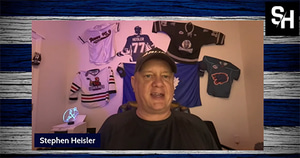JuniorHockey.io
DO NOT LET THE THE LACK OF DISCIPLINE BLINDFOLD YOUR CAREER Let’s face it; the discipline of players at this age is paramount and something that should not be taken lightly.
Mar 21, 2025
Play: AI Text To Voice
Well we already know that this article is not going to be popular. Let’s face it; the discipline of players at this age is paramount and something that should not be taken lightly. All too often coaches and parents try to become friends with these kids. Boys at this age need and desire structure.
Structure, that’s a serious word but what does it really mean? In my house that means a scheduled routine is the way we go about our day, the way we treat other people, and the way we should treat each other. My two youngest children are not 16 to 20 years old, they’re eighteen and sixteen years old.
But even at that age the children understand consequences, something many junior hockey players are clueless about. Is that the fault of the parents, the coaches, or their environment?
That kind of depends on who you’re talking to. I do know this; the most successful programs never take discipline lightly. Coaches and teams need to establish the line of what’s acceptable and never allow the players to go past it.
In most cases, when teams have discipline problems the issue comes down to the coach. What is that coach trying to accomplish, does he understand these players are not his friends, and that the parents have turned over the reins of accountability to the coach?
The sad part is that a lot of coaches struggle with that responsibility, and often enable the behavior that leads to serious discipline problems.
It’s not that the coaches are bad people, and in most cases they genuinely want what’s best for the players. I get that, but can’t understand when the coaches reward discipline problems instead of forcing the players to face real consequences for their actions, on or off the ice.
Above everything, junior hockey provides ample time for players to mature on and off the ice, and it is the coaches’ responsibility to mentor these young men, not enable them.
Coaches that eventually figure out that balance are the ones that will have the most success. And also the same coaches that the players will have the most success with, either in their hockey careers, or even in their daily lives. It’s those successes that separate the good programs from the bad programs.
A good advisor has an established relationship with a network of coaches that get it. Navigating the world of junior hockey without a guide can be equivalent to driving down the freeway with a blindfold on. Take that blindfold off and give us a call, it’s not too late.
